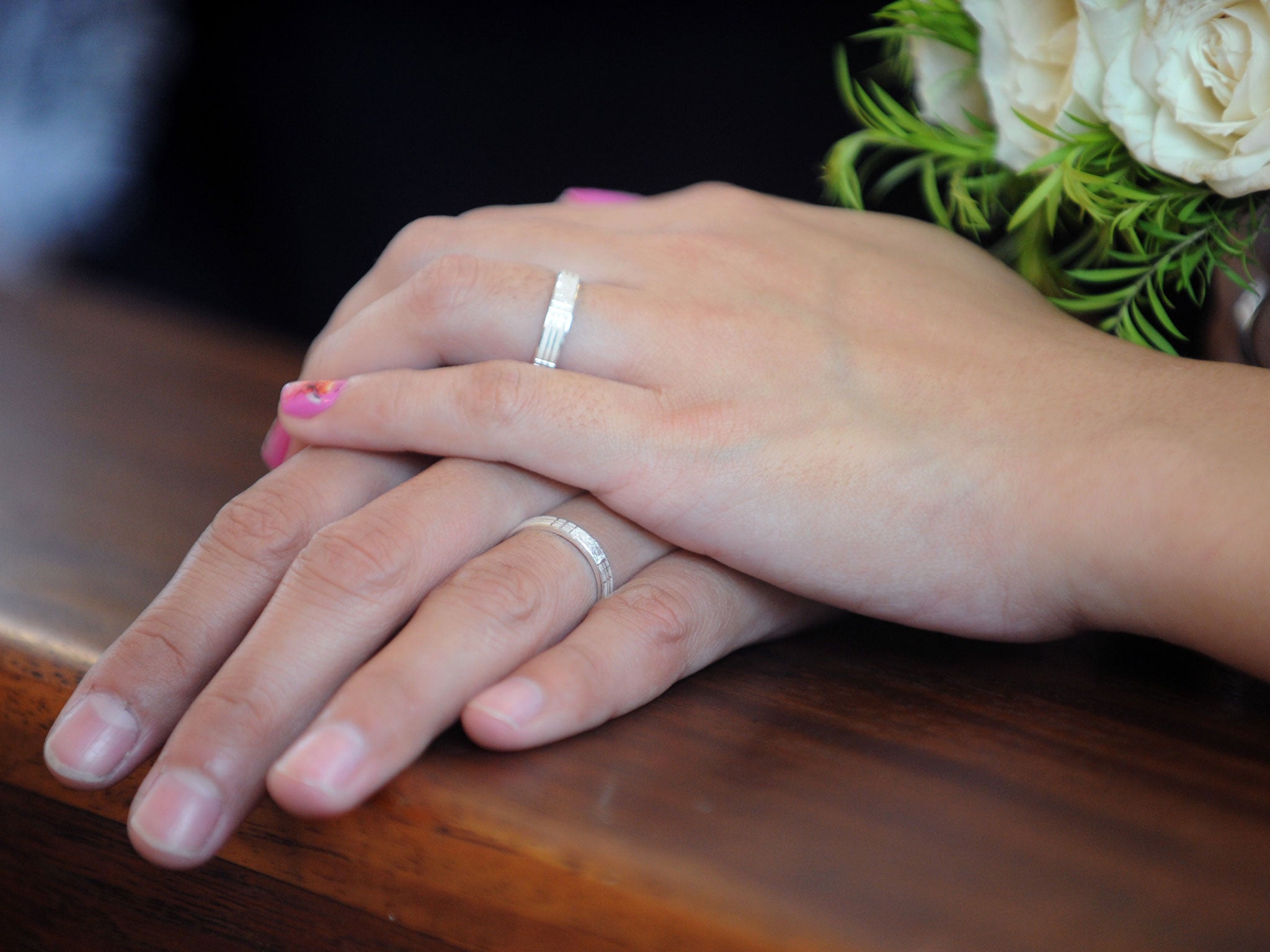Being married can make you depressed, study finds
Researchers at the University of Wisconsin-Madison found that chronic marital stress can lead to depression

Your support helps us to tell the story
From reproductive rights to climate change to Big Tech, The Independent is on the ground when the story is developing. Whether it's investigating the financials of Elon Musk's pro-Trump PAC or producing our latest documentary, 'The A Word', which shines a light on the American women fighting for reproductive rights, we know how important it is to parse out the facts from the messaging.
At such a critical moment in US history, we need reporters on the ground. Your donation allows us to keep sending journalists to speak to both sides of the story.
The Independent is trusted by Americans across the entire political spectrum. And unlike many other quality news outlets, we choose not to lock Americans out of our reporting and analysis with paywalls. We believe quality journalism should be available to everyone, paid for by those who can afford it.
Your support makes all the difference.If you can’t find that perfect person to walk down the aisle with you could be avoiding a life of misery - because being married can lead to depression, a study has found.
It has been well documented that married people are happier and healthier than their single counterparts, but researchers at the University of Wisconsin-Madison in the United States discovered that marriage can also be a source of chronic stress.
The long-term study, published in the April issue of the journal Psychophysiology, showed that people who experience ongoing tension in their marriages are more likely to report symptoms of depression, such as an inability to enjoy positive experiences.
Study leader Richard Davidson, a professor of psychology and psychiatry, said the findings could help scientists to understand what makes some people prone to mental health problems.
Professor Davidson said: “This is not an obvious consequence, if you will, of marital stress, but it's one I think is extraordinarily important because of the cascade of changes that may be associated.
“This is the signature of an emotional style that reveals vulnerability to depression,” he added.
Researchers asked married adults to complete a questionnaire rating their stress levels on a scale of one to six. They were asked questions including how often their partner criticised them or let them down. They were also evaluated for signs of depression.
Nine years later they repeated the same tasks.
In the eleventh year of the study the participants underwent laboratory tests to measure their emotional resilience, which affects how quickly a person can recover from a damaging experience.
They were shown 90 images, which were a mixture of negative, neutral and positive photographs and researchers measured how they frowned.
Those who had reported higher levels of marital stress had shorter-lived responses to the positive images than those who had said they were more satisfied with their partner.
And the researchers said chronic marital stress could provide a model for studying how other sources of daily stress lead to depression.
Lead author Regina Lapat, a graduate student, said: "How is it that a stressor gets under your skin and how does that make some more vulnerable to maladaptive responses?"
Professor Davidson added: "How we can use simple interventions to actually change this response? What can we do to learn to cultivate a more resilient emotional style?"
Join our commenting forum
Join thought-provoking conversations, follow other Independent readers and see their replies
Comments